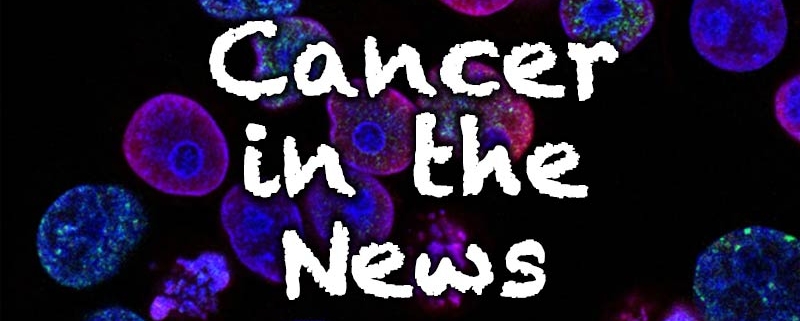New treatment news, and Science validates what we knew
Today’s newsletter seems to be themed “the things we knew were true are just now being validated by science”. I’ll start out with new treatment news though.
22nd Issue: Contents
Treatment News:
• Trastuzumab Deruxtecan Receives FDA Approval for Metastatic HER2+ Breast Cancer
• World first: drug prevents human breast cancer recurrence and metastasis
• Metformin Bombs in Breast Cancer in Landmark Trial
• Doxycycline, Azithromycin and Vitamin C: A potent combination therapy for targeting mitochondria and eradicating cancer stem cells
We-already-knew-this-but-thanks news:
• Nutrients and Exercise Affect Tumor Development
• Low Vitamin D Tied to Breast Cancer Risk in Hispanic Women
• Black Patients Often Never Given Chance to Join Cancer Trials
• Periodontitis Linked With Systemic Diseases
• Study Shows Link Between Consumption of Dairy and Cancer
• Does Positive Psychology Have a Role in the Cancer Experience?
Treatment News:
• Trastuzumab Deruxtecan Receives FDA Approval for Metastatic HER2+ Breast Cancer (for use in earlier stages as well as well as in HER2 low BC)
“The FDA has approved the use of Enhertu for the treatment of patients with unresectable or metastatic HER2-positive breast cancer who have previously received an anti-HER2 treatment in the metastatic, neoadjuvant, or adjuvant setting followed by disease recurrence during treatment or within 6 months of completing therapy. The approval was based on findings from the phase 3 DESTINY-Breast03 trial, which highlighted a reduction in risk of disease progression or death by 72% compared with trastuzumab emtansine (Kadcyla)”
My two cents: I’ve been hearing such good things about Enhertu, anecdotally, It has been approved for a couple of years but now it’s been approved for earlier use as well as in HER2 low breast cancer. Side effects can be challenging but it’s nice to know there’s another weapon in the armory.
• World first: drug prevents human breast cancer recurrence and metastasis
Scientists have succeeded in preventing the recurrence and spreading of a human breast cancer in mice, in conditions very similar to clinical practice, thanks to a new drug (the molecule MitoQ) MitoQ has been tested in people during an initial clinical phase and its toxicity is slight. Phase 2 and 3 tests are expected shortly. This shows that relapses and metastases, the main causes of cancer mortality, can be prevented more effectively.
My two cents: Can it be true? Welcome news, if so.
• Metformin Bombs in Breast Cancer in Landmark Trial
“Metformin, a common option for patients with type 2 diabetes, had previously been shown in observational studies to be associated with improved survival of cancer patients. This latest trial in breast cancer, found that metformin had no effect on survival.”
My two cents: While I generally embrace the idea of re-purposed drugs for cancer treatment, The evidence for this common claim never materialized. Glad its been studied, now we know.
• Doxycycline, Azithromycin and Vitamin C: A potent combination therapy for targeting mitochondria and eradicating cancer stem cells
“A new strategy for eradicating cancer stem cells (CSCs), via a “synthetic-metabolic” approach, involving two FDA-approved antibiotics and a dietary vitamin supplement, effectively results in the synergistic eradication of CSCs.”
My two cents: Yay! I do need to point out, that this research was in vitro, i.e. human cells in the lab, not human subjects. But they are isolating variables and mechanisms of action that could turn out to be significant from a therapeutic standpoint.
We-already-knew-this-but-thanks news:
The following fall in the what-we-already-knew-its-nice-of-science-to-start-studying-it category.
• Nutrients and Exercise Affect Tumor Development
“Diet and lifestyle can have an influence on each of the successive stages that occur in the carcinogenesis process: initiation, promotion, and progression. Although nutritional factors and factors related to daily habits are more or less the same, the impact of these at each phase is different… physical exercise has been shown to have the ability to modulate the tumor environment, decreasing hypoxia and reducing the bioavailability of plasma lactate. This modulating effect translates into an improvement in the efficacy of chemotherapy and other oncological treatments”
My two cents: We already knew this on some level (as I say in my protocol book… Gramma was right!) So many healing wisdoms from Gramma have been right all along. Nice to have it corroborated by science.
• Low Vitamin D Tied to Breast Cancer Risk in Hispanic Women
“Over an average follow-up of 9.2 years, women with circulating 25(OH)D levels above the clinical cut point for deficiency (20.0 ng/mL) had a 21% lower breast cancer rate than women with concentrations below this cut point.The inverse association was strongest in Hispanic/Latina women, with a weaker association seen in Black/African American women. The associations between 25(OH)D and breast cancer did not vary by tumor characteristics.”
My two cents: The correlation between Vitamin D and breast cancer has been known for some time, even by science. Glad they are sussing out the nuances in different populations. Takeaway: Monitor your Vitamin D levels!
• Black Patients Often Never Given a Chance to Join Breast Cancer Trials
“Nearly half of Black patients with metastatic breast cancer are never informed about clinical trial participation, despite the fact that most are open to the idea. Roughly 15% of breast cancer patients in the U.S. are Black, and these patients carry the highest mortality rates, yet Black patients make up only 4-6% of trial participants. But the survey finds several actionable findings that could boost enrollment.”
My two cents: Now that the significant inequity has been found, I hope they DO take action to right the wrong.
• Periodontitis May Be Linked With Systemic Diseases
“Several studies have demonstrated a link between the chronic inflammation seen in periodontitis and the risk of malignant transformation in organs such as the oral cavity, head and neck area, esophagus, stomach, liver, colon, uterine cervix, ovaries, urinary bladder, and lung. It is suggested that the inflammatory response and cell-stimulating signals provide a microenvironment for cell proliferation and differentiation, demonstrating the role periodontal infection plays in the risk of developing cancer.”
My two cents: My dental health has played a significant and obvious role in my healing-from-cancer journey. Takeaway: Take care of your teeth and gums. I recommend coconut oil pulling (scroll to “The link between dental health, general health, and chronic disease”).
• Study Shows Link Between Consumption of Dairy and Cancer
“A large new study comparing Chinese dairy consumption with that in the UK, shows that increased dairy consumption was linked to higher risks of liver cancer and female breast cancer.”
My two cents: We knew this from other science research but a large study corroborates it. Takeaway: Mind your intake of dairy products. My favorite milk substitution? Organic oat milk. Oats contain beta glucans… immune boosters. Plus I have to watch my nut consumption, so I steer away from the nut-based alternatives.
• Yin and Yang of Psychological Health in the Cancer Experience: Does Positive Psychology Have a Role?
“Positive psychological health is crucial to optimal clinical outcomes across the cancer care continuum, from prevention and risk reduction to palliative care and survivorship. Yet, the positive psychological factors that affect morbidity and mortality have not been extensively studied in diverse oncologic populations compared with other medical populations—although they could be extremely influential in a cancer population facing a life-threatening diagnosis.
It is essential that oncology clinicians assess the psychological and mental health of their patients at multiple points in their care cycle to ensure that psychological factors are not causing undue burden and suffering.
studies that specifically examine the association between positive psychological factors and inflammation in the oncology population could further advance the science of PPWB in medical populations.”
My two cents: This is a more of a call for science studies rather than a study although references to to research that HAS been done to date are interesting. Me, I’m just happy to see psychological well-being as a factor in healing being discussed by research scientists and physicians.
Cancer in the News has a posting frequency of once every one to two months.



Kaiulani, my Norton blocked your newsletter calling it the “dark web”! Since I know you, I pursued past the Norton block but. . .